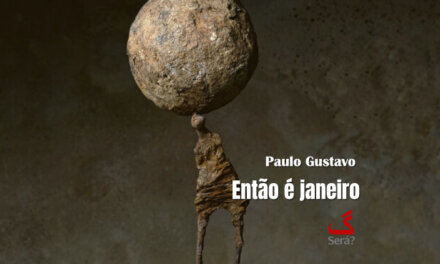Since January 27th, until February 2d, the Chinese people commemorate their New Year. It is a family celebration. Traditionally it was a spring festival, it was the start of a new cycle of tilling and planting, and people wished each other an abundant harvest. Nowadays it celebrates a new year of work, and one wishes good profits and success in each endeavour. But it is still an occasion to gather the family and thus a period of packed airports and railway stations, as people travel to other cities or head for their villages to visit relatives. The family dinner on the eve of New Year is the most important meal of the year.
Streets and houses are decorated with red lanterns of all shapes and sizes. And in this Year of the Rooster, dolls and images of the bird are all over China. The color red is believed to repel bad luck. And if in Brazil some of us believe that one has to start the year in new clothes, this time I saw Chinese advertisement of red underwear as the right thing to wear to enter the New Year. Gifts are exchanged much in the same way it is done at Christmas in Western countries. It is common (and I don’t know whether it is tradition or pragmatism) to give a red envelope with some money, but only to children and retirees. It is not proper as a present to an adult working normally. In 2017, the choice of gift for many will be a coin in gold with the image of a rooster, minted in Australia for the occasion.
This year the presents drawing most of the attention are the ones the American Donald Trump is giving his Chinese colleague Xi Jinping. The first gift to China was presented at the first workday of President Trump, when he signed the executive order ending US participation in the Transpacific Partnership (TPP), a wide-ranging trade pact negotiated with some dozen countries. It had not yet been submitted to the US Congress and its chances of approval were minimal.
The populist who did not achieve nomination, Bernie Sanders, had joined Donald Trump in the electoral campaign in describing TPP as a project of the elite against ordinary Americans, and in the end also Hillary Clinton was criticising the trade agreement. The US Chamber of Commerce favoured its approval, because it would create jobs, and it meant raising barriers to the ambitions of China, which remained outside the agreement. It was part of a strategy reaffirming US influence in Asia as a counterweight to China. Besides lowering tariffs, the pact intended to reduce non-tariff barriers, with a set of international norms related to labour, environment, intellectual property, subsidies, sanitary standards. According to former President Obama, who spent years negotiating the harmonization of those rules with the support of Japan and Australia, the United States should not leave to China the writing of rules for the global economy.
Abandoning TPP, the United States leaves the space to the country most able to occupy it, China. Since Trump’s election, the Philippines, Singapore and Malaysia have shifted support to the Regional Comprehensive Economic Partnership, the free trade agreement proposed by China, which also reduces tariffs and redirects trade towards China. Others will likely take the same route. As New Zealand Prime Minister, Bill English, declared the day Trump announced the withdrawal: “We don’t have the choice America has. It’s big enough that they can make a living selling things to themselves. We have to trade.” The same applies to Chile and Peru, Brazil’s neighbours that signed the TPP. Some Washington pundits are using harder expressions: the terrific “dealmaker”, unilaterally, for free, gave China a big victory.
The next executive order is not directly related to TPP and China. It will lead to the renegotiation of the North American Free Trade Agreement (NAFTA), between the United States, Mexico and Canada. The end of NAFTA would redirect trade flows, even if it does not happen from night to day. As Mexicans already noted “all that we buy from the United States we can buy elsewhere”, even if it is painful, given old ties and close proximity with the giant to the North. It is a matter of price and transport costs. January 25th Trump signed the executive order to start building a wall along the US-Mexico border, and another order related to the work of police to identify and send back immigrants.
For now it is unclear which government funds will pay for the wall in those parts of the border where it does not exist already. One estimate says US$11 billions are needed. Trump informed journalists that construction will start in a couple of months and that he will somehow make Mexico pay the wall (even immigrant’s remittances were alluded to). Some 11 million unauthorized immigrants live in the United States, and one can imagine the fear quotient rising with each Trump declaration, since he labelled Mexican immigrants as criminals and drug traffickers and maintained, in its first meeting with Congress members, that he had won the popular vote if millions of undocumented immigrants who had illegally voted for Hillary were deducted.
It is thus no surprise that, for the first time, you find Mexican authorities talking of leaving NAFTA. The Economy Minister Ildefonso Guajardo said on TV that “if we have to negotiate for less than we have now, it does not make sense to remain”. The Mexican government had been cooperating with the United States in fighting the drug cartels and in containing immigrants coming from Central America (where, of late, are stranded thousands of Cubans who had hoped reaching the US just before the termination of the special treatment given to Cubans arriving without a visa – the so called “Wet-Foot, Dry Foot Law”).
President Enrique Peña Nieto intended to deal with trade, immigration and security as interlinked, and show President Trump evidence that a wall will not avoid drug trafficking, which takes legal routes. A prolonged process of renegotiation of NAFTA, because of the period of uncertainty it introduces, is bound to damage Mexico more than any possible advantage the country might obtain in an actual renegotiation. The Mexican President was suffering popular pressure to cancel his official visit to Washington scheduled for January 31t, and Trump escalated the aggression saying that, if it was not in order to pay for the wall, there was no need for him to come, leaving Mexico no alternative but to cancel the visit. Jorge Castañeda, Mexico’s former Minister of Foreign Affairs, who has studied the “war on drugs”, says that this wall of the Americans would have to replace everything the Mexicans have been doing to help the United States in these matters.
In the United States, the most benign critical comment came from the military who recalled that, if an eight-meter high wall is built, the sale of eight-meter high ladders will rise. Not so much cynicism, as sadness, came on the phone from a former UN colleague, a persistent defender of multilateralism, who has stayed in Manhattan: “while they commemorate the Year of the Rooster, we here are starting the Year of the Elephant, with the new President acting like an elephant in a china shop”.** Actually, the disorder, violence and awkwardness pictured by a heavy elephant in a porcelain shop don’t damage the relations between US and China alone. After taking the United States out of trade deals, President Trump is signalling he will devote himself to multilateral organizations, from NATO to United Nations, with an attempt to subordinate them to his agenda or abandon them, first by delaying payment of agreed budget quotas.
The aggression to the multilateral order is not stopping here. Trump has cancelled participation and has signalled he will pull the US out of the Paris agreement on climate change that entered into force last November, signed by almost all countries in the world. At home, he signed an order to expedite the construction of oil pipelines that had been blocked for environmental reasons (adding that the pipes should not be imported). He reinforced, in this manner, the global leadership role China is increasingly taking also on climate change. China, as the largest emitter of CO2 (mainly due to the use of coal), has global responsibility for climate change, but it is now the largest investor in sustainable infrastructure and is leaving the rest of the world behind in clean energy. Five of the top six solar panel manufacturers and five of the top 10 wind turbine makers are Chinese. Last year the investment of China in renewable energy was the largest in the world. Its building capacity, according to such an authority as Nicholas Stern, is amazing: it is installing on average more than one new wind turbine every hour.
It is thus understandable that Xi Jinping, the first president of China to attend the World Economic Forum in Davos, defended the Paris climate agreement and called for more international cooperation to deal with today’s global problems. It is not only understandable, but reflects China’s modernization, since just a few years ago the Chinese were still those most insistent in pleading for differential treatment and lower requirements in all environmental forums of the United Nations.
In the absence of the main leading figures of the developed countries, Xi Jinping was the star of the annual gathering in Davos. “In an irony of the first order” (Eric Li, venture capitalist and political scientist in Shanghai, in the Financial Times), the elite of the liberal world, defender of globalization and trade integration, is so perplexed with the rising tide of nationalist populism, so disturbed by threats to international trade in goods and services, that it invited the President of China to make the keynote address in Davos. In an apparent counterpoint to Trump (without mentioning him) and the evident rise of protectionism and rejection of multilateralism in the United States, the President of the second largest economy in the world delivered a remarkable defence of globalization. Economic globalization – it should be stressed. It was first of all a pitch for respecting agreed international rules for trade and investment: “…no one will emerge as a winner in a trade war”. And more: China had no intention to benefit from a devaluation of its currency. He hoped for a level playing field. He insisted that globalization, an economic phenomenon, could not be held responsible for regional turbulence and the waves of refugees that unsettle Europe.
It is early to perceive China as the new leader of globalization. We are seeing already the flood of articles (as in Foreign Affairs, for instance) that want to explain us that China cannot become a global leader. And though China, in the last 15 years, has been a member of the World Trade Organization (WTO), and was as well or as bad behaved as any other country, Western countries and Japan did not want to recognize China as a “market economy” as they pledged when China joyously commemorated its access to WTO in December 2001. Of course, this refusal does not result from a serious theoretical discussion of what is, strictly, a “market economy” and reflects only the resistance to treat in equal conditions Chinese exports in WTO’s rules on dumping.
In any case, China’s idea of globalization is not necessarily the same as promoted by the liberal elites in Davos. The fact is that we have been saying for a least 20 years that globalization benefits people as a whole, in each country and worldwide, but that some sectors stay behind, certain factories close, products disappear and losers are real. In no other country globalization was, as in China, the road taken to lift 600 million people out of poverty. In theory, international cooperation could compensate the losers of globalization. Has it taken too long? In this moment of upheaval and acute transition, many bets are made about the future. For now, what is clear is that the global order is out of order.
***
* The original article, in Portuguese, was posted January 27, 2017. The English version is my own.
** In the Portuguese version it was necessary to warn that the irony is somewhat lost in translation, since “porcelain” in Portuguese cannot be called “china”.














comentários recentes